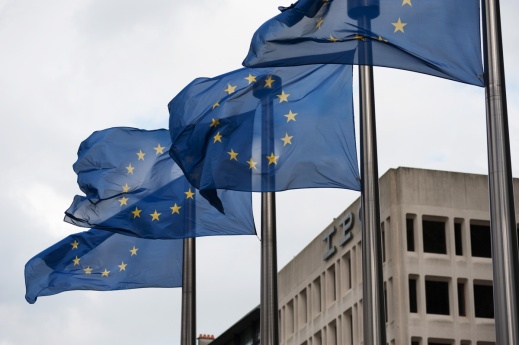By Jared Angle
BRUSSELS — Europe of Freedom and Direct Democracy (EFDD), the eurosceptic political group led by UK Independence Party MEP Nigel Farage, dissolved Thursday following the defection of a key Latvian MEP.
MEP Iveta Grigule, a member of the Latvian Farmers Union party, left her position in the group Thursday morning, according to EU news website EurActiv and sources in Parliament (EP).

Founded in 2009 as the Europe of Freedom and Democracy, the group was rebranded as the EFDD in June 2014 after a merger with the Five Star Movement, an Italian eurosceptic party.
Current parliamentary rules, established in 2009, require political groups to maintain at least 25 MEPs representing 25 percent of member states.[1]
As a result of Croatian accession to the European Union in 2013, this means that a political group must represent at least seven of the 28 member states.
Previous regulations from 2007 required groups to have 20 MEPs from one-fifth of member states. Earlier rules from 1994 required groups to have 26 MEPs from a single state, while groups could have a range of 23 MEPs from two states to 14 MEPs from four states.[2]
Eurosceptic group marked by numerous setbacks
The EFDD was the direct successor of the Independence and Democracy eurosceptic group in the EP, which was founded in 2004 following the collapse of the preceding Group for a Europe of Democracies and Diversities, originally founded in 1999. Between 1999 and 2007, the group’s strength ranged from 16 to 38 MEPs.[3]
The group held an all-time high of 48 MEPs following the May 2014 elections until its collapse on Oct. 16.
As the EFDD no longer holds political group status, its members will lose a number of privileges afforded to eligible groups, including the EP’s large center-right and center-left parties, as well as a number of smaller groups that still meet the minimum membership requirements.
While the use of EP funds for election campaigns is prohibited following a 1986 decision from the European Court of Justice, two components of the EP budget allow recognized political groups to use EP funds for a limited range of group activities.
Budget items 3707 and 3708 (later consolidated as Item 3701) allow EP funds to be directed toward administrative functions, secretariat support and dissemination of group information.[4]
Prior to its collapse, the EFDD was expected to receive some €4 million during 2015, over half of which would have been allocated to information and group communication, according to the British Broadcasting Corporation.
[1] Neill Nugent, The Government and Politics of the European Union, 7th ed. (New York: Palgrave Macmillan, 2010), 193.
[2] David Judge and David Earnshaw, The European Parliament, 2nd ed. (New York: Palgrave Macmillan, 2008), 115.
[3] Judge and Earnshaw, 131-132.
[4] Judge and Earnshaw, 117.